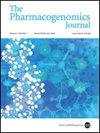Targeted next-generation sequencing of genes involved in Warfarin Pharmacodynamics and pharmacokinetics pathways using the Saudi Warfarin Pharmacogenetic study (SWAP)
IF 2.9
3区 医学
Q2 GENETICS & HEREDITY
引用次数: 0
Abstract
Warfarin is an oral anticoagulant commonly used for treatment and prophylaxis against thromboembolic events. Warfarins’s narrow therapeutic index window is one of the main challenges in clinical practice; thus, it requires frequent monitoring and dose adjustment to maintain patients’ therapeutic range. Warfarin dose variation and response are attributed to several inter-and intra-individuals factors, including genetic variants in enzymes involved in warfarin pharmacokinetics (PK) and pharmacodynamics (PD) pathways. Thus, we aim to utilize the next-generation sequencing (NGS) approach to identify rare and common genetic variants that might be associated with warfarin responsiveness. A predesigned NGS panel that included 16 genes involved in Warfarin PK/PD pathways was used to sequence 786 patients from the Saudi Warfarin Pharmacogenetic Cohort (SWAP). Identified variants were annotated using several annotation tools to identify the pathogenicity and allele frequencies of these variants. We conducted variants-level association tests with warfarin dose. We identified 710 variants within the sequenced genes; 19% were novel variants, with the vast majority being scarce variants. The genetic association tests showed that VKORC1 (rs9923231, and rs61742245), CYP2C9 (rs98332238, rs9332172, rs1057910, rs9332230, rs1799853, rs1057911, and rs9332119), CYP2C19 (rs28399511, and rs3758581), and CYP2C8 (rs11572080 and rs10509681) were significantly associated with warfarin weekly dose. Our model included genetics, and non-genetic factors explained 40.1% of warfarin dose variation. The study identifies novel variants associated with warfarin dose in the Saudi population. These variants are more likely to be population-specific variants, suggesting that population-specific studies should be conducted before adopting a universal warfarin genotype-guided dosing algorithm.利用沙特华法林药物基因研究(SWAP)对涉及华法林药效学和药代动力学途径的基因进行有针对性的新一代测序
华法林是一种口服抗凝剂,常用于治疗和预防血栓栓塞事件。华法林的治疗指数窗狭窄是临床实践中的主要挑战之一,因此需要经常监测和调整剂量,以维持患者的治疗范围。华法林的剂量变化和反应可归因于个体间和个体内的多种因素,包括参与华法林药代动力学(PK)和药效学(PD)途径的酶的遗传变异。因此,我们旨在利用新一代测序(NGS)方法来鉴定可能与华法林反应性相关的罕见和常见基因变异。我们利用预先设计的 NGS 面板(包括华法林 PK/PD 通路中涉及的 16 个基因)对来自沙特华法林药物遗传队列(SWAP)的 786 名患者进行了测序。我们使用多种注释工具对鉴定出的变异进行了注释,以确定这些变异的致病性和等位基因频率。我们进行了变异与华法林剂量的关联测试。我们在测序基因中发现了 710 个变异,其中 19% 是新变异,绝大多数是稀缺变异。基因关联测试表明,VKORC1(rs9923231 和 rs61742245)、CYP2C9(rs98332238、rs9332172、rs1057910、rs9332230、rs1799853、rs1057911、和 rs9332119)、CYP2C19(rs28399511 和 rs3758581)和 CYP2C8(rs11572080 和 rs10509681)与华法林每周剂量显著相关。我们的模型包括遗传因素,非遗传因素解释了华法林剂量变化的 40.1%。这项研究发现了沙特人群中与华法林剂量相关的新型变异。这些变异更有可能是人群特异性变异,这表明在采用通用的华法林基因型指导剂量算法之前,应进行人群特异性研究。
本文章由计算机程序翻译,如有差异,请以英文原文为准。
求助全文
约1分钟内获得全文
求助全文
来源期刊

Pharmacogenomics Journal
医学-药学
CiteScore
7.20
自引率
0.00%
发文量
35
审稿时长
6-12 weeks
期刊介绍:
The Pharmacogenomics Journal is a print and electronic journal, which is dedicated to the rapid publication of original research on pharmacogenomics and its clinical applications.
Key areas of coverage include:
Personalized medicine
Effects of genetic variability on drug toxicity and efficacy
Identification and functional characterization of polymorphisms relevant to drug action
Pharmacodynamic and pharmacokinetic variations and drug efficacy
Integration of new developments in the genome project and proteomics into clinical medicine, pharmacology, and therapeutics
Clinical applications of genomic science
Identification of novel genomic targets for drug development
Potential benefits of pharmacogenomics.
 求助内容:
求助内容: 应助结果提醒方式:
应助结果提醒方式:


